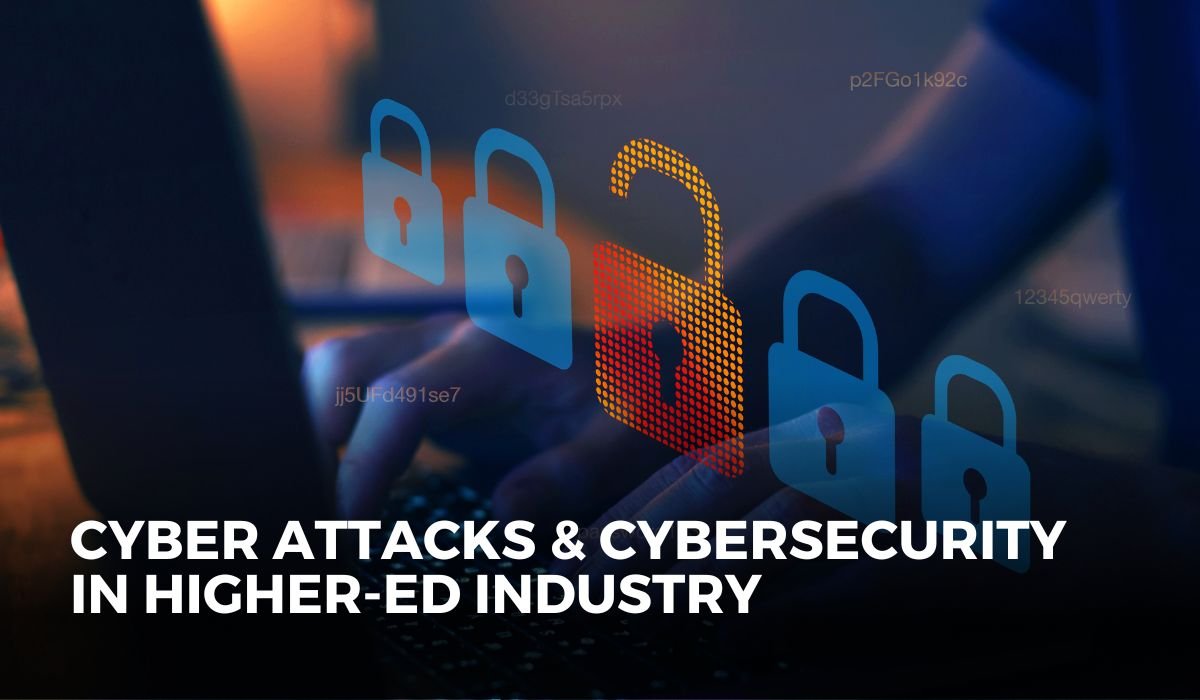
Do you realize how important it is for higher education institutions to keep up-to-date on their cybersecurity strategy? How vulnerable are they to cyber-attacks?
An effective cybersecurity strategy protects you from hackers’ theft or loss of crucial data. It is a fact that more than any other industry, the higher education sector is a victim of these attacks as hackers attack the sensitive data of students and teachers, which causes damage and disruptions in operations; therefore, cyber security is crucial for educational institutes.
Cyber attack in the higher education sector is a recent phenomenon; it is not a problem that has been around for decades in higher education. Recently, universities have been the prime target of hackers due to the increased use of technology and the internet as now it is accessible to get information on the internet; moreover, it has become increasingly more common now as in the pandemic, there is an increasing trend of online education which require laptops, smartphones, desktops or tablets, which provide the chance to criminal to attack.
7 Ways To Prevent Cyber Attacks Against The Higher Education Sector
1. Educating Your Staff
A great way to protect your data and cyber attacks is to train the staff about the protocols of security, as the team is the one who has more access to your system. It is necessary to make them aware of the risks and how to avoid them. They should learn about the security protocols by learning how to spot a phishing email, for example, and what to do if they receive one, enabling them to protect their institution.
2. Protect Your Data
There is a strong need to protect your data and keep it safe from hackers; for this, there is a need to use strong passwords and MFA.
Universities are big targets, so they need to be more secure; they can take insurance against cyber risks or hire CISOs (chief information security officers) with expertise and skills in security issues. One more step forward towards tightening security is multi-factor authentication (MFA), such as OTPs, which can ensure that your data is just that extra secure.
3. Automatic Upgradation
Universities should put clear priority on automatic upgradation of software as hackers attack mostly when security just breached, so update the software regularly and turn on your automatic updates, keep your operating system up-to-date and never open suspicious emails or files from unknown senders.
4. Secure Networks
It is also essential to keep your networks secure using firewalls, antivirus software, or other security measures like VPNs or two-factor authentication where possible, which will ensure that if there are any breaches in security, they will activate.
5. Student Awareness And Contribution
today’s era is of education on digital devices, and every student has a laptop, tablet, or smartphone for education; students are more likely to be hit by hackers; students need to be aware of cybercrime. They should never open suspicious emails, links, and attachments that a person sends they don’t know and never give their personal information on the internet without proper verification of the source. In this way, they can prevent themselves and their fellow students from being victims of cyber attacks.
6. Wi-Fi Security
In an era of WiFi, that’s precisely the compromise for your security as it can connect to any device. Its password should be firm and frequently changed to secure the WiFi or internet connection. Securing your WiFi network is the mandatory thing you can do to prevent cyber attacks.
7. Passwords
For security purposes, it is essential to have a different password set up for every application; using different passwords really benefits your security, and also, it’s necessary to change passwords often; changing passwords will maintain a high level of protection against cyber threats.
Conclusion
The higher education sector is no exception and is a big target for cyber attacks, but we can prevent these attacks by taking preventive steps against cybercrime. At Sanguine Informatics, we remain up-to-date on all cybersecurity trends to ensure that your institute’s data remains as safe as possible.





